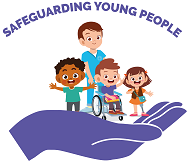
Safeguarding and Vulnerabilities Team
0121 812 3272

Speak to us
If you are experiencing or at risk of abuse, all staff are trained to listen, help and support you. You can speak to us in confidence away from your family, carers or friends. Wherever possible we will always try to keep the information you share with us confidential, but if we feel that you or another young person is at risk of further harm we may need to share this information with other services so we can get the help and support to protect you.
People should never hurt Children and Young People
Unfortunately, some people do hurt children and Young People by hitting them, sexually abusing them, shouting at them, exploiting them and not caring for them. When children and young people are hurt in some way by an adult or an older young person this might be what is called child abuse. There are many different forms of child abuse:
Neglect
Every child deserves to be loved, cared for and protected but 1 in 10 children have experienced neglect. This includes not being supported to go to school or health appointments, being left hungry/dirty or without proper clothing and not being protected from danger.
Physical
When someone hurts or harms a child or young person on purpose. It includes: hitting, hair pulling, biting, beating with objects, shaking and burning.
Emotional
This involves the continual emotional mistreatment of a child or young person. It’s sometimes called psychological abuse. Emotional abuse can involve deliberately trying to scare, humiliate, isolate or ignore, bully and putting you down.
Sexual
When a child or young person is sexually abused, they’re forced or tricked into sexual activities. Sexual abuse can happen anywhere – and it can happen in person or online. This can include: sexual touching, being forced to undress and or take part in sexual activities, made to look at or make photographic sexual images.
Child Exploitation
When a child or young person is exploited they’re given things like gifts, drugs, money, status and affection, in exchange for performing sexual or criminal activities. Children and Young People are often tricked into believing they’re in a loving and consensual relationship or they are part of a “friendship” group called a gang. They will use physical, sexual and emotional abuse as a form of control.
Child Trafficking and Modern Slavery
Trafficking is transporting a child or young person without their consent to exploit them for sexual activities, drugs, forced labour, forced marriage and criminal activity. Traffickers often groom children, families and communities to gain their trust. Traffickers often promise children and families that they’ll give them a better future.
Female Genital Mutilation (FGM)
FGM is when a female’s genitals are deliberately altered or removed for non-medical reasons. It’s also known as ‘female circumcision’ or ‘cutting’, but has many other names; cutting, sunna, tahur, gudniin, halalays, megrez and khitan. It’s dangerous and a criminal offence in the UK.
Forced Marriage
A forced marriage is a marriage that takes place without the full and free consent of both parties. It is against the law. Some young people are threatened or abused if they refuse to marry someone.
Domestic Abuse
Domestic abuse is any type of controlling, bullying, threatening or violent behaviour between people in a relationship for those age 16 and above. Living in a home where domestic abuse happens can have a serious impact on a child or young person’s mental and physical wellbeing.

Safeguarding Children and Young People at The Royal Orthopaedic Hospital Birmingham is one of our key priorities. We have a responsibility to provide a safe environment for Children, Young people and Families to access help and support during challenging times. We will work together with agencies to improve lives and well being for those most vulnerable in society.
If you are concerned about your own safety and or the safety of another person and believe they need to be kept safe from harm, please just speak to us..
Contact information
If you feel that you are unable to talk to us, you can get support from organisations:
| Organization | Phone |
|---|---|
 |
0808 8005000 |
 |
08457 909090 |
 |
0800 11 11 |